OUR SPEAKERS – SYMPOSIUM 2025
COSMETIC SCIENCE
Shaping the future
La beauté évolue, portée par la science. À chaque avancée, nos repères changent : soins, normes, procédés, visions. Cette nouvelle édition de l’International Symposium SFC réunira des chercheurs et experts dont les travaux façonnent l’avenir de la cosmétique. Leurs interventions, données en anglais, ouvrent des perspectives inédites pour l’avenir du secteur sur les thèmes clés suivants : Biologie cutanée, Microbiotes, Sciences cognitives et neurosciences, Nouvelles ressources, Nouveaux outils.
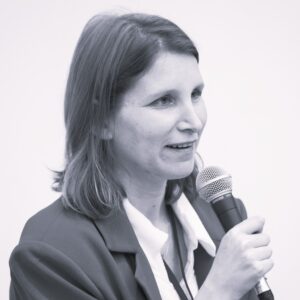
Coralie EBERT
MeNow / Founder & AI Computational Biology Expert
Israël
From Molecule to Miracle:
The Transformative Role of AI
in Cosmetic Ingredient DiscoveryArtificial intelligence is transforming cosmetic science, particularly in the discovery and development of novel bioactive ingredients.
Advances from rule-based systems to deep learning and probabilistic models now enable faster and more precise ingredient identification. Techniques such as deep Bayesian networks, QSAR modeling, and omics analysis accelerate targeted compound discovery. Case studies on SIRT1 activators and heparanase inhibitors highlight AI’s role in anti-ageing and skin barrier protection. Overall, AI is emerging as a key driver of safer, smarter, and more sustainable cosmetic innovation.
BIOPIC
Coralie Ebert is the founder of MeNow, a deeptech startup using AI to unlock the hidden power of nature. With a Master’s in Bioinformatics and Biostatistics from École Polytechnique and a PhD in Computational Neuroscience from the Weizmann Institute, she bridges hard science and innovation to design the next generation of bioactive ingredients. Before launching MeNow, she worked in the pharmaceutical industry developing algorithms for early-stage drug discovery — with a special focus on dermatology. Today, her work combines massive molecular data, machine learning, and systems biology to discover novel actives from plants, fungi, and microbes. She recently filed a patent on natural SIRT1 activators derived from Sorghum bicolor, paving the way for new approaches to longevity and skin health.

Patrick VEIGA
INRAE / Scientific Director
France
Gut microbiome : Health from within
The human gut microbiome and its host have co-evolved in a symbiosis that is essential for health. When this equilibrium is disrupted—through loss of diversity or expansion of pro-inflammatory species—the consequences extend far beyond the gut, impacting multiple organs.
In this talk, we will explore the mechanisms that sustain this host–microbe partnership, the systemic consequences of its disruption, and its role in the development of chronic diseases, and on the emerging links to skin health.
BIOPIC
Patrick Veiga joined INRAE’s MICALIS and MetaGenoPolis units in April 2022 as a Research Director. He currently serves as the Scientific Director of MetaGenoPolis, one of the leading international centers dedicated to gut microbiome research, and of The French Gut project—a large-scale citizen science initiative aiming to analyze the gut microbiota of 100,000 French citizens, alongside detailed dietary and health information. His primary research focuses on deciphering the complex interactions between the gut microbiome, diet, and health, with the ultimate goal of identifying microbiome-based strategies for disease prevention and health promotion. Patrick began his scientific career at INRA in 2003, where he conducted both his Master’s and PhD research. In 2008, he joined Danone Nutricia Research, where he studied the impact of probiotics on the gut microbiota. In 2011, he was appointed visiting scientist at the Harvard T.H. Chan School of Public Health, joining Dr. Wendy Garrett’s immunology lab to investigate the molecular effectors of probiotics in inflammatory gut contexts. Back at Danone in 2014, he co-led the company’s gut microbiome research program and managed a multidisciplinary research team. In 2018, he initiated an international citizen science project in collaboration with Professor Rob Knight (University of California San Diego), exploring diet–microbiome interactions across five countries. In 2019, he was promoted to Scientific Director at Danone Nutricia Research. He obtained his HDR (Habilitation à Diriger des Recherches) in 2021, a French academic distinction that qualifies him to supervise PhD students and lead independent research programs. Patrick Veiga is the author or co-author of 31 peer-reviewed scientific publications, including in high-impact journals such as Nature Microbiology, Nature Communications, and PNAS.
Beyond his scientific work, Patrick is also committed to science outreach. He is the author of the novel Mission: Microbiome – Metchnikoff’s Legacy (Mission : Microbiome – Les héritiers de Metchnikoff), a work of fiction aimed at raising public awareness of microbiome science through storytelling.
Pauline ELIE
Hôpital Lariboisière / Health data protection Advisor
France
Digital twins of human beings for cosmetology: limits and framing
Originating in object modeling, digital twins have been applied for the last decade to human beings: in cosmetology and dermatology, for instance, the digital twin of the skin enables personalized care or early detection of pathologies.
This virtual representation of the body generated by AI systems processing personal as environmental data is currently limited to organs or metabolic functions. But digital twins of people, first promoted by transhumanists in the United States, are now institutionalized through healthcare in Europe, to simulate the whole body and be integrated into Earth digital twin. Hence, these anthropomorphic simulations pose significant risks to freedom, privacy, data protection or human identity: how can they be developed safely to guarantee users’ trust? In light of the principle of data minimisation, we question the very concept of the digital twin.
BIOPIC
Pauline Elie is a lawyer, author and ethics advisor. She works on health data protection for a predictive medicine device at Lariboisière Hospital (AP-HP), and regularly contributes to Philo Editions media, notably Philonomist. Her academic publications focus on ‘artificial intelligence’ ethics, social credit systems and the digital twin of a human being. Her thesis in Law, Political Studies and Philosophy at EHESS (UMR 8131) explores the notion of human identity in the digital age. Former student of 42 school of computer science, Pauline Elie holds a bachelor’s and master’s degree, in political science and public affairs from SciencesPo Paris, as well as in philosophy from Nanterre University and Sorbonne University (Paris IV), and a master’s degree in digital private law from Panthéon-Sorbonne University (Paris I).
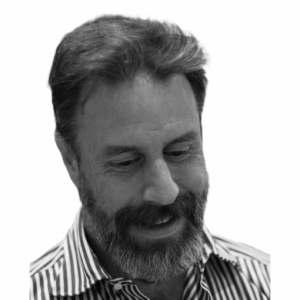
Philippe PAPADIMITRIOU
Cosystems / Open Innovator
Switzerland
Engineering Intelligent Pathways: Closing the Distance
Future advances in skincare will be driven by emerging biotechnologies capable of precisely orchestrating complex and largely unexplored biological systems.
This vision moves beyond conventional pathways, integrating sophisticated molecular and cellular control mechanisms. By leveraging adaptive and spatially precise strategies, these innovations will redefine therapeutic efficacy. The boundary between molecular engineering and cellular autonomy will continue to blur. Ultimately, skincare will evolve from topical interventions to programmable, intelligent biological modulation.
BIOPIC
Innovation, curiosity, and science are the three cornerstones of Philippe Papadimitriou’s approach to cosmetics and health. Guided by this ethos, he has led multidisciplinary teams to develop breakthrough formulations, drive market growth, and translate cutting-edge research into consumer-ready solutions. Drawing on extensive academic training in molecular biology, pharmacology, biochemistry, and neurosciences (University of Geneva), as well as a deep expertise in every stage of product development, including designing novel preclinical and clinical studies, Philippe consistently transforms complex challenges into tangible opportunities. With more than 20 years in cosmetology, he today serves as honorary Scientific Director at Hormeta and acts as Open Innovator at Cosystems, the freelance entity he founded in 2019.
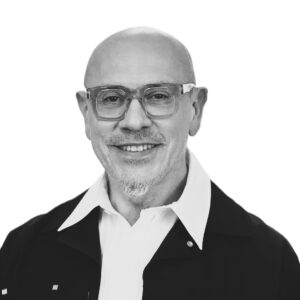
Noël SCHARTZ
Dermatologist / Centre Iéna21
France
Other fields in cosmetology: Perspectives of Regenerative Medicine in Dermatology and Cosmetology
Aesthetic medicine and cosmetic science are merging into a single regenerative discipline. Biotechnologies such as exosomes, delivery systems, and nutricosmetics are transforming skin care from surface correction to biological renewal.
The “Glow” paradigm redefines beauty as a sign of cellular vitality and longevity. Ethical minimalism promotes clean, sustainable, and evidence-based formulations. This convergence marks the rise of biological beauty — science-driven, personalized, and regenerative.
Biopic
Dr. Noël Schartz is a dermatologist and immunologist based in Paris, and a former Chief Resident at Saint-Louis Hospital. He previously conducted research at the Institut Pasteur and Gustave Roussy. Dr. Schartz is the Founder of the Iéna21 Center in Paris, a leading institution dedicated to medical, surgical, aesthetic, and laser dermatology. He is also an Associate at the Centre Laser International de la Peau de Paris (CLIPP), where he contributes to the advancement of dermatological innovation and excellence. In addition, Dr. Schartz serves as Treasurer of the SFED, the French Society of Aesthetic Dermatology.
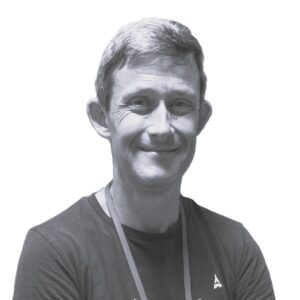
Pr Jérôme LAMARTINE
CNRS / Co-leader Skin Functional Integrity group
France
Deciphering the non-coding-RNA networks in epidermal homeostasis
Aesthetic medicine and cosmetic science are merging into a single regenerative discipline. Biotechnologies such as exosomes, delivery systems, and nutricosmetics are transforming skin care from surface correction to biological renewal.
The “Glow” paradigm redefines beauty as a sign of cellular vitality and longevity. Ethical minimalism promotes clean, sustainable, and evidence-based formulations. This convergence marks the rise of biological beauty — science-driven, personalized, and regenerative.
BIOPIC
Jérôme Lamartine is a Professor of Genetics at Claude Bernard University Lyon I and co-leads the Skin Functional Integrity group at the LBTI in Lyon. A graduate of the École Normale Supérieure de Lyon, he earned his PhD in 1996 at the International Agency for Research on Cancer, focusing on genetic susceptibility to viral infections. After brief postdoctoral work in Lyon and Montreal on genetic neurodegenerative disorders, he became Associate Professor at the University of Evry in 1997, working at Genethon on genodermatoses.
From 2000, at the CEA’s Functional Genomics Department, he pioneered high-throughput transcriptomic analyses of skin cells. Appointed Professor at Lyon 1 University in 2005, he created a CNRS research team dedicated to the genetic networks regulating epidermal differentiation and stress responses. Since joining the LBTI in 2015, his work has centred on genetic and epigenetic mechanisms of skin homeostasis, particularly the role of non-coding RNAs in skin ageing.
He also leads France’s only Master’s programme in Skin Biology, established in 2016 to train research leaders for both academic and industrial settings.

Isabelle ADER
INSERM / Researcher
France
Identification of functional cellular markers related to human health, frailty and chronological age
Aging leads to decline in physiological reserves, an increase in age-related diseases, reduced functional ability and a shortened healthspan.
While molecular markers of chronological aging exist, their link to general health and intrinsic capacity (IC), a composite measure of physical and mental capacities, remains unclear. This study integrates the WHO’s Healthy Aging framework with geroscience to explore fibroblasts as indicators of health.
BIOPIC
Isabelle Ader is a researcher at INSERM in the RESTORE laboratory in Toulouse, dedicated to Geroscience, and a member of the board of directors of IHU HealthAge, having previously served on the executive and scientific committee of INSPIRE. Her work focuses on the impact of energy metabolism on the maintenance of cellular and tissue homeostasis, and its role in aging and age-related diseases. She conducts translational and multidisciplinary research, including projects using artificial intelligence to predict physiological age. Her multi-scale approach, from the cell to the whole organism, relies on human cohorts such as MAPT, INSPIRE-T, and NHANES. Her recent work on fibroblasts from the INSPIRE cohort and on the metabolic signature identified in NHANES reflects her integrative vision for predicting healthy aging and developing personalized medicine.
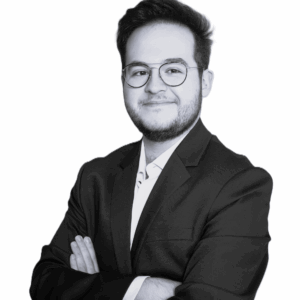
Arthur DERVILLEZ
LORETTA / President–Founder
France
Quantitative Nanoscale Topography of Skin Cells for Cosmetic Product Assessment Using Atomic Force Microscopy
Understanding the nanoscale morphology of corneocytes offers a powerful window into the biophysical mechanisms underlying skin barrier function and cosmetic efficacy.
In this study, we employed Atomic Force Microscopy (AFM) to quantitatively characterize the evolution of corneocyte surface topography following repeated application of three cosmetic formulations : a hydrating night serum, a facial lotion, and a pH-regulating toner.
BIOPIC
Arthur Dervillez is the founder and CEO of Loretta, which he has led for one year while spearheading multiple R&D projects within the company. A PhD student at DTU Health Tech, he is a doctoral candidate in bioanalysis with extensive research experience in detecting and analyzing biological properties for innovative cosmetic applications. With six years of expertise in biophysical methods and team management, Arthur brings a strong scientific and strategic vision to the development of next-generation cosmetic analysis solutions.
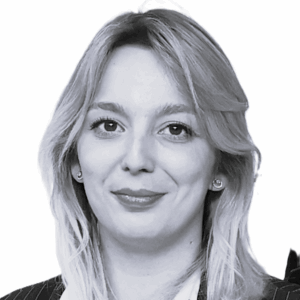
Cécile NAIT
BIOHIVE / CEO – FOUNDER
France
Skin Organoid : toward a more human approach of dermatology
Skin organoids derived from pluripotent stem cells recapitulate key cutaneous structures, including dermis, epidermis, hair follicles and sebaceous glands. These self-organising 3D tissues provide an ethical and more predictive alternative to traditional reconstructed models and animal testing.
In cosmetic science, they enable the investigation of skin ageing, barrier repair, pigmentation control and responses to environmental stress under physiologically relevant conditions. Their versatility supports detailed exploration of cellular and molecular mechanisms driving visible skin outcomes. Limitations remain, notably model complexity and insufficient representation of phototypes and genetic diversity. Future progress will require broader donor inclusion and multi-omic characterisation to enhance physiological relevance. This next-generation technology promises more inclusive, ethical and scientifically robust innovation in the cosmetic field.
BIOPIC
During her thesis, Cécile Nait developed an organoid model of Verneuil’s disease, an inflammatory skin condition, combining several technologies.Her expertise led her to found BioHive to capitalise on her expertise and the technological advances of the model.
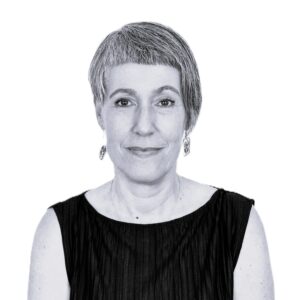
Blanca MARTÍNEZ
LIPOTRUE / Senior Business Development Manager
Spain
An innovative, computationally designed peptide that targets mTORC1, enhances autophagy and safeguards against senescence
Autophagy is a vital cellular process that recycles cytoplasmic material through lysosomes and is triggered by nutrient deprivation, such as caloric restriction. This mechanism is regulated by the mTOR protein within the mTORC1 complex; its inhibition promotes autophagy and is linked to longevity, while overactivation is associated with aging.
Compounds that enhance autophagy are called senomorphics because they help reduce cellular senescence. The study focuses on H11ChAQ, a novel peptide designed to inhibit the kinase domain of mTOR, mimicking the effects of caloric restriction. Its potential to stimulate autophagy, reduce senescence, and improve skin radiance, elasticity, firmness, and wrinkle appearance was evaluated.
BIOPIC
Dr. Blanca Martinez is Senior Business Development Manager at Lipotrue, where she bridges cutting-edge cosmetic science with strategic market expansion. With over 20 years in the beauty and personal care industry, Blanca brings a unique blend of scientific expertise and commercial insight. Prior to joining Lipotrue, she led ingredient innovation at ISDIN, guiding the development of over 200 formulations, and directed R&D at Provital, where she doubled the revenue contribution from key actives. Holding a PhD in Organic Chemistry, Blanca loves to turn complex science into compelling product stories. Whether she’s building partnerships or crafting the next must-have ingredient, she’s driven by curiosity, collaboration, and a passion for innovation.
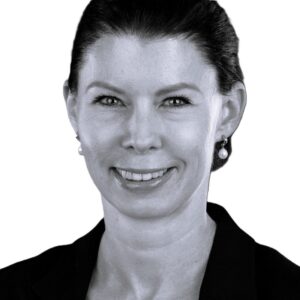
Eva BÖNZLI
MIBELLE GROUP BIOCHEMISTRY / Scientific Project Manager
Switzerland
Pyroptosis – a promising target to improve self-esteem by reducing skin redness
Pyroptosis, a complex inflammatory cell death triggered by caspase-1, plays an important role in many skin conditions such as rosacea. An extract from Capsella bursa-pastoris, which is rich in kaempferol and quercetin, inhibits caspase-1 and leads to a significant reduction in facial redness.
Thus, targeting pyroptosis offers a novel dermocosmetic strategy for inflammatory skin and emotional well-being.
BIOPIC
Eva Bönzli studied biology at the University of Basel (Switzerland) and then completed her PhD at the Universities of Zurich and Bern. Her studies focused on inhibiting the viral entry mechanism and establishing an immunological test for determining specific disease-associated antibodies. After two postdocs on the topic of liposome research, she joined Mibelle Biochemistry, where she is a scientific project manager responsible for the entire process of planning and organizing efficiency tests.

Silvia BENITO
PROVITAL
SPAIN
A novel platform for the discovery and biotechnological production of plant endophytes as a source for cosmetic actives
We have developed a pioneering biotechnology platform to discover and isolate endophytes –the plant microbiota– as a novel and sustainable source of high-value cosmetic actives. This platform has enabled the creation of a library of more than 130 unique strains and the development of multifunctional postbiotic extracts backed by efficacy studies. By unlocking new resources and opening the door to next-generation raw materials, we position endophyte-derived actives as a new frontier in cosmetic innovation.
This platform has enabled the creation of a library of more than 130 unique strains and the development of multifunctional postbiotic extracts backed by efficacy studies. By unlocking new resources and opening the door to next-generation raw materials, we position endophyte-derived actives as a new frontier in cosmetic innovation.
BIOPIC
Silvia Benito holds a PhD in Cellular and Molecular Biology from Institut Curie and PSL University of Paris. She has established innovative cellular models to investigate and advance knowledge on skin pigmentation and photoprotection, collaborating with academics & industrials and publishing articles in prestigious journals. Silvia has received multiple scientific awards recognizing the innovation of her research and the impact of her presentations at international conferences. Now, as Science Communication Manager, she develops communication strategies for global events and clients, enhancing the visibility of Provital’s research, innovation and developments. Noteworthy, the California Chapter of the Society of Cosmetic Chemists named Silvia « Best Speaker of the Year 2024 ».

Audrey LE MESTR
ASHLAND / Leader of New Product Evaluation team
France
Humanin mitopeptide for skin longevity through nocturnal mitochondrial restoration
The role of mitochondria goes beyond traditional powerhouse of the cell. Mitochondrial DNA encodes for humanin, a regulator of lifespan and healthspan. This study emphasizes its role in senescence and nocturnal mitochondrial restoration, by playing on mitophagy and mitofusion, through the testing of an innovative Iris pallida root extract.
This extract reversed perceived age by rejuvenating volunteer’s appearance by one year in only one month of application.
BIOPIC
Audrey Le Mestr holds a master’s degree in sciences and technology, biology specialty biotechnology from the University of Nîmes in France. She has been working for Ashland for 17 years, as an expert in skin physiology and she is actually the Leader of the “New Product Evaluation” team, part of the Biofunctionals and Naturals Innovation R&D department (Sophia Antipolis, France). With her team, she develops testing to sustain new claims for our biofunctional portfolio dedicated to skin care and hair care, using cell models, skin explants and innovative reconstructed tissue associated with clinical evaluation on healthy volunteers. She participates to the innovation and the scientific excellence through the publication of articles and posters for scientific congress.
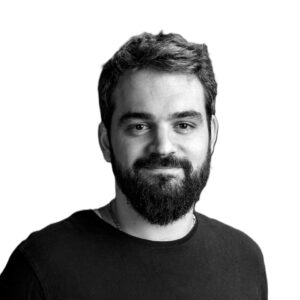
Julien CHLASTA
BIOMECA / CEO
France
Mechanical Decline of Skin Stem Cells: How the Exposome undermines Epidermal Vitality
This study shows that interfollicular stem cells (ISCs) progressively lose their distinct mechanical identity with age and exposome exposure. Using AFM on human skin explants, we observed declining stiffness in ISCs and their extracellular matrix, accompanied by dermal papilla flattening.
These biomechanical changes emerged before visible signs of aging and were accelerated by UV, pollution, and oxidative stress. The mechanical convergence between ISCs and basal keratinocytes suggests impaired regenerative capacity.
BIOPIC
Julien Chlasta is a researcher in skin biology and tissue engineering, and the founder and president of BioMeca. His work focuses on how the skin reacts, regenerates, and ages, exploring the mechanical forces and cellular signals that shape it. With a curious and cross-disciplinary mindset, he moves between biology, physics, and engineering to understand this living tissue in all its complexity.
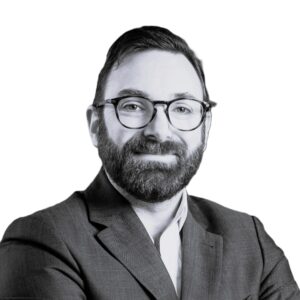
Emmanuel COSTE
EXSYMOL / Head of Scientific Communication
Monaco
Induction of autophagy and adenosine receptor activation: the dual effect of a natural complex on hair and scalp health
Skinification is a marketing term that consists in treating both scalp and hair with the same product. Silicium has been shown to stimulate autophagy that has been described to regulate sebum production and to stimulate hair growth.
Adenosine contributes to promote hair growth by stimulating the production of growth factors by hair follicle dermal papillary cells (HFDPC). A combination of silicium and adenosine (SiAd) was therefore generated. In vitro, ex vivo and clinical studies demonstrated that SiAd is capable of stimulating hair growth while regulating sebum production via its effect on autophagy, HFDPC, hair matrix cells and sebocytes. It could therefore be an ideal active ingredient for any skinification cosmetic project.
BIOPIC
Emmanuel COSTE studied cell biology at Edinburgh University (Scotland, UK) where he got his PhD in 2010. He joined EXSYMOL in 2011, as technical sales representative, and later becomes Scientific Marketing Manager. Today, as Scientific Communication Manager, he uses his scientific and technical expertise to promote Exsymol’s innovative cosmetic actives worldwide.

Lucie COUTURIER
GATTEFOSSÉ / R&D Manager Cosmetic Actives
France
New bioinspired innovation to boost skin resilience through dynamic regulation of skin tissue
As climate change impacts our environment and skin, the demand for adaptive skincare solutions is rising. In this context, skin must become resilient and adapt with agility.
New solution has been discovered thanks to a deep-dive into biological strategies employed in living systems to find new solutions, selecting Bombyx – Morus silk and phosphoproteomic to generate a new concept. This work represents a leap forward with bioinspired new solution to help the skin adapt to climate change.
BIOPIC
After an Engineer School followed by a PhD Thesis in Organic Green Chemistry for pharmaceutics, Lucie Couturier pursued a career in Cosmetic Industry at Solabia as a R&D Project Leader for 6 years, then as a R&D Advanced Research Manager in L’Oreal Research and Innovation for 11 years. She worked then for 2 years in the Innovation Center for Soft Biomaterials in Hermès Maroquinerie Sellerie (Leather Goods).
Lucie is now leading the R&D Actives Group within the Research & Developpement Department of Gattefossé since April 2025. Her main research interests are focused on phytochemistry, green process, biotechnologies, and skin biology, for the development of dermo & cosmetic applications; she practices Ecodesign and Biomimicry to drive sustainable innovation projects.
Isabelle CASTIEL
IFSCC / President
France
Presentation of the IFSCC
Isabelle Castiel is the new President of the IFSCC (International Federation of Societies of Cosmetic Chemists) for 2025-2026. She coordinated the Scientific Committee for the 2025 IFSCC International Congress in Cannes.
BIOPIC
Isabelle Castiel is a Doctor of Pharmacy and a PhD holder in dermo-pharmacology.
She is the Director of Innovation Valorisation in Communication and Engagement at L’Oréal Research & Innovation, where she has worked for over 27 years. Her research career has resulted in 28 scientific publications and numerous patents. Since joining the R&I Communication department in 2014, she has focused on scientific promotion to raise awareness of L’Oréal’s excellence in research and innovation among diverse audiences.

Danila FALANGA
ARTERRA BIOSCIENCE / Research Scientist
Italy
Plant-Based PDRN: Next-Gen Ingredients for Skin Health
Polydeoxyribonucleotide (PDRN) are DNA fragments with therapeutic potential in regenerative medicine and cosmetics due to its ability to activate the adenosine A2A receptor, promoting tissue repair and regeneration.
Our study highlights the potential of vegan PDRN, ethical alternative to animal-derived PDRN, in cosmetics as a sustainable ingredient that effectively supports skin regeneration by activating the A2A receptor.
BIOPIC
Danila Falanga graduated in Medical Biotechnology from the University of Naples « Federico II » in 2015. She received a Second level Master in “Management and promotion of biological and genetic research for medicine” at Università degli Studi Roma Tre”, Roma, Italy in 2017. She conducted research at The Telethon Institute of Genetics and Medicine (TIGEM) from 2015 to 2018. Since 2018 she has been a researcher at Arterra Bioscience Spa.

Corinne REYMERMIER
BASF Beauty Creations / R&D Project Leader
France
Investigating UV-exacerbated neurogenic inflammation for Sensitive Skin care
Sensitive skin reacts strongly to stimuli, leading to inflammation. Two experimental models were developed: one for sun-protected sensitive skin and one for sun-exposed sensitive skin.
The inflammatory marker Il-8 released in the first model demonstrated the TRPV1 pathway implication while the increase in IL-6 in the second model demonstrated the contribution of UVB and CGRP. These findings support using different models to test new ingredients for sensitive skin.
BIOPIC
Corinne Reymermier is a distinguished project leader recognized for guiding multidisciplinary research from concept to bioactive solutions. Specializing in cutaneous biology, epigenetics, and non-animal testing, she advocates ethical, sustainable skin health approaches, utilizing advanced in vitro, ex vivo, in vivo models, and generative AI. Her work drives innovation and scientific progress in the field. In addition to her advance in understanding skin epigenetics, chronobiology, and blue light, she now develops sensitive skin methods enabling concrete innovations for the future.

Alba CICO
CRODA / Research Team Leader
France
Body brains’ communications: from gut to skin -L. rhamnosus postbiotic to improve skin condition and holistic well-being
Stress-induced cortisol disrupts skin barrier, circadian rhythm, and accelerates aging. Given the importance gut-microbiota has on stress symptoms, we used gut-derived Lactobacillus postbiotic to fight cortisol impact on skin.
This postbiotic protected skin circadian clock under cortisol by restoring CRY2 rhythmicity. It boosted production of well-being mediators, melatonin and longevity markers. Clinically, it enhanced skin resilience, improved sleep quality and well-being, creating a virtuous circle between skin health and emotional balance.
BIOPIC
After a few short experiences in laboratories in Cambridge and Memphis, Alba completed her PhD at CEA, focusing on the epigenetic mechanisms of red blood cell differentiation. This was followed by work on single-cell RNA sequencing in a start-up. Alba joined Croda seven years ago and now leads a team specializing in the epidermis, microbiome, and skin appendages.

Emeline de RUFFRAY
EVONIK / Scientific Valorisation & Claim Officer
France
From Dysbiosis to Balance : a Microbial Co-culture Model redefining Acne Ingredient Evaluation.
Understanding microbiome–ingredient interactions requires models that reflect the complexity of skin ecosystems. Novel in vitro skin microbiome models were developed to simulate both healthy and acne-prone environments, incorporating key commensal and pathogenic strains.
These models replicate the lipid-rich, anaerobic pilosebaceous unit and enable precise tracking of microbial dynamics using qPCR. They distinguish between virulent and commensal Cutibacterium acnes phylotypes, critical in acne pathogenesis. This platform allows targeted evaluation of cosmetic actives, supporting the development of microbiome-balancing skincare solutions.
BIOPIC
Emeline de Ruffray is a science-driven innovation specialist with a background in biotechnology and strategic management. She currently works at Evonik as a Scientific Valorisation and Claim Officer, where she bridges scientific insights with product development. Her career spans roles at L’Oréal, Guerlain, and MedSPA, focusing on regulatory affairs and scientific communication. Emeline holds an engineering degree from EBI and a Master’s in Innovation Management from emlyon business school. Passionate about translating science into value, she thrives at the intersection of research, regulation, and market strategy.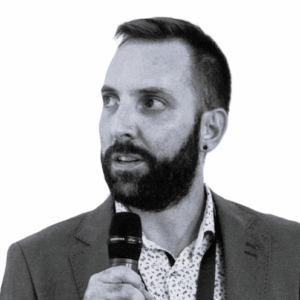
Vincent DANI
EXADEX-INNOV / CEO & Co-Founder
France
3D vascularized ex vivo human tissue models reveal body site-specific characteristics for dermo-cosmetic ingredient evaluation
This study presents 3D vascularized ex vivo human tissue models derived from different body sites to evaluate site-specific characteristics relevant for cosmetic research. Facial tissues display unique extracellular matrix gene expression and protein secretion profiles, while abdominal tissues show higher metabolic activity, consistent with distinct biological roles.
By mimicking aging-related changes, abdominal models can be induced to exhibit facial-like phenotypes. This approach enables the development of targeted skincare addressing cosmetic concerns such as dark circles, under-eye bags, loss of firmness, and inflamm’aging with greater accuracy.
BIOPIC
Dr Vincent Dani is the CEO and co-founder of ExAdEx-Innov, with expertise in bioengineering and design of ex vivo tissue models that closely reproduce human biology. He developed the company’s proprietary technology to generate predictive 3D human models, advancing research in dermo-cosmetics and aesthetic medicine, with a focus on more ethical, more effective and more biologically relevant solutions.

Catherine ZANCHETTA
GIVAUDAN / Strategic & Innovation Manager
France
Dandruff: Understanding Microbial Interabiome for Cosmetic Solutions
Dandruff is linked to an imbalance of scalp microorganisms, particularly the overgrowth of Malassezia yeasts. Researchers analyzed 17 microbial species from healthy and dandruff-affected scalps using quantitative PCR.
Network analyses (clustering coefficient, edge density, positive interactions) revealed lower stability in dandruff microbiota.
Healthy scalps showed stronger, more balanced microbial interactions.
A targeted active ingredient that disrupts Malassezia membranes restored balance and improved scalp microbial stability.BIOPIC
Catherine Zanchetta is responsible for Strategic & Innovation Management at Givaudan Active Beauty R&D. Her primary mission is to lead technical innovation and competitive intelligence to bring highly differentiated products to market. She also coordinates scientific communication and delivers conferences on the development and performance of Givaudan ingredients. Catherine joined Givaudan in 2018 as a microbiologist, where she evaluated ingredients performance. She holds a Master’s Degree in Molecular Biology.

Elisa CHIQUET IRAIZOS
HelloBiome / COO
USA
Advancements in Microbiome Data Collection and AI-Driven Models for Skin and Scalp Longevity
Microbiome science is transforming skin and scalp health through standardized data collection and AI-driven analysis. AI models generate scores for sensitivity, longevity, and microbiome balance while identifying novel profiles.
Microbiome diversity emerges as a potential biomarker for aging and long-term health. This data-AI combination enables breakthrough innovations in personalized care. The approach opens new opportunities for targeted health and wellness solutions.
BIOPIC
Elisa CHIQUET IRAIZOS holds a degree in engineering and an MBA from ESSEC Business School, with over 12 years of experience spanning gut and skin microbiome applications. Her career includes roles at Danone, focusing on pediatric gut microbiome and immunity, and IFF/DuPont, specializing in innovative ingredients for food and personal care.
As Director of Operations at HelloBiome, Elisa leads commercial strategy and B2B operations, developing microbiome intelligence platforms and clinical services for the cosmetics industry. She leverages her cross-sector expertise to advance evidence-based innovation in dermocosmetics through rigorous microbiome science.
Yuki MIZUTANI
KOSÉ Corporation / Chief of KOSÉ R&D France
Japan
Our Insights into the Mechanisms of Age Spots: Toward Even Skin Tone and Well-Aging
Age spots are caused by intrinsic and extrinsic factors such as hormone, age, and UV, driving our goal to elucidate their underlying mechanisms. We analyzed age spots histologically and biochemically to understand the phenomena occurring within.
Our findings suggest an efficient melanosome transfer mechanism, based on 3D reconstruction of basal layer cells. Furthermore, we identified an anti-hyperpigmentation factor associated with senescence of dermal fibroblasts. These studies offer new strategies for achieving even skin tone and well-aging.
BIOPIC
Yuki Mizutani, Ph. D. is a senior research scientist at KOSÉ Corporation, a leading cosmetics company in Japan. She has been actively engaged in basic dermatological research, focusing on the biological mechanisms underlying pigmentary disorders and aging, and she has developed active ingredients and quasi-drugs based on these findings. She has dedicated to the cosmetic and scientific fields as a director of the Japanese Cosmetic Science Society and a councilor of the Japanese Society for Pigment Cell Research. In 2025, she was appointed Chief of KOSÉ R&D France, based in Lyon.

Joan ATTIA
LUCAS MEYER COSMETICS by Clariant / Head of Global R&D
France
AI-Driven Design of a New-Generation Tetrapeptide for Advanced Neurocosmetic Applications
An AI-designed PFAS-free peptide targets Neprilysin, an enzyme regulating neuropeptide secretion and elastin degradation, to restore neurocutaneous communication impaired by aging and external stressors.
The peptide inhibits Neprilysin enhancing neuropeptide levels while reducing melanin production. In addition, in vitro studies demonstrated its ability to reduce muscle contraction frequency, reinforcing its botox-like effect. A multi-ethnic clinical study with 72 participants confirmed the peptide’s triple benefits: wrinkle reduction, facial muscle relaxation, and skin brightening with enhanced radiance. This innovative approach demonstrates how a single, intelligently designed active can deliver comprehensive skin benefits by addressing the neurocutaneous pathway.
BIOPIC
With a master’s degree in Neurosciences and a PhD in Biomolecules & Therapeutic Pharmacology, I have over 19 years of expertise in skin research, specializing in peptides and employing a Design Thinking mindset. My career began with pioneering work on the development of medical devices for skin repair, which led me to join Lucas Meyer Cosmetics’ R&D team in 2014. In 2019, I was appointed to oversee the company’s global R&D department, where I spearheaded the innovation of raw materials—active ingredients, functional ingredients, and delivery systems—through sourcing, design, testing, and production. This work aimed to drive the formulation of sustainable, cutting-edge cosmetics ingredients.
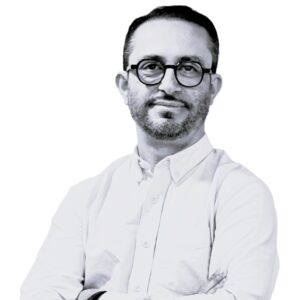
Gallic BEAUCHEF
LVMH RESEARCH / VP, Scientific Project Officer in Cutaneous Biology
France
Age-dependent effects of white adipose tissue secretions on human skin fibroblasts: role of adiponectin
Human skin is organized into three layers, with the hypodermis largely composed of white adipose tissue (WAT). Far from being solely an energy reserve, WAT functions as a dynamic endocrine organ, actively secreting bioactive molecules—adipokines such as adiponectin—that regulate communication between skin compartments and influence the extracellular matrix.
Robust evidence shows that WAT-derived signals are crucial to the maintenance and function of dermal and epidermal cells. We showed that with advancing age, both the secretory profile of WAT and the capacity of dermal fibroblasts to respond to endocrine inputs are impaired, notably through reductions in adiponectin and its receptors. These changes disrupt adipose–dermal interactions, thereby altering the molecular composition and integrity of the skin’s extracellular matrix and contributing to age-related skin changes.
BIOPIC
Gallic BEAUCHEF is Life Sciences Innovation Manager at LVMH Recherche, where he leads strategic research initiatives in longevity science and advanced skin biology. He earned his PhD in Cutaneous Biology in 2008 from the Université de Caen Normandie, with co-supervision by Johnson & Johnson, focusing on transcriptional regulation of type I collagen during skin aging and scleroderma. Prior to joining LVMH, Dr. BEAUCHEF spent over a decade at Clarins Laboratories as Head of the Cutaneous Biology Laboratory and In Vitro Research Manager where he developed innovative ex vivo testing methods, analyzed human skin responses to environmental stressors, and contributed to understanding adipose tissue-dermis interactions and their role in skin aging. His adipose tissue work included collaborative work on white adipose tissue gene expression in relation to body weight changes. At LVMH Recherche since 2021, he drives open innovation partnerships focused on longevity, including strategic collaborations to discover novel chemical entities targeting aging mechanisms at the molecular level, integrating his understanding of cutaneous aging across dermal, epidermal, and adipose tissue compartments.
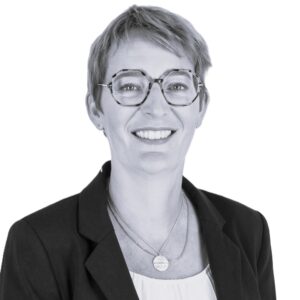
Estelle LOING
NAEMOS / CEO
France
Precision Indoor Farming & Elicitation: A Sustainable Revolution for High-Performance Cosmetic Active Ingredients
Næmos’ ELITE® platform integrates precision indoor farming, predictive elicitation, and eco-efficient extraction to generate ultra-active plant ingredients with minimal environmental footprint. By fine-tuning environmental stimuli such as light and temperature, it activates specific plant defense pathways to naturally amplify high-value phytocompounds, delivering clinically proven cosmetic efficacy.
This closed-loop, pesticide-free system reduces water and land use by over 90%, ensuring full traceability, transparency, and sustainability – redefining the future of high-performance, eco-conscious cosmetics.
BIOPIC
Dr. Estelle Loing is a biologist specializing in the development of innovative ingredients. With a PhD in cellular biology and experience at Lucas Meyer Cosmetics and IFF, she has held leadership positions in R&D and innovation. In 2024, she joined Næmos as CEO, a company focused on sustainable active ingredients from indoor farming. She has published numerous scientific papers and patents and has contributed to the commercialization of many innovative ingredients.
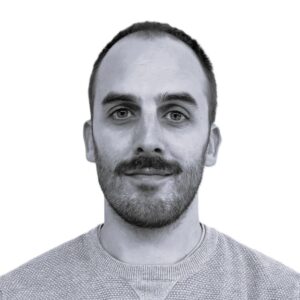
Alejandro LLAMEDO
NALÓN INNOVA / Head of Product
Spain
Exosome-like Nanocarriers: Biomimetic Vesicles for Cosmetic Applications
Biomimetic exosome-like nanocarriers were developed to overcome the limitations of natural exosomes for cosmetic use. These vesicles, designed to mimic exosomal size and lipid composition, were characterized and tested using bakuchiol as a model active.
They showed optimal size, safe cytocompatibility and enhanced penetration into epidermal layers. Confocal studies confirmed active endocytosis by key skin cells, demonstrating functional similarity to natural exosomes. Overall, these carriers provide a stable, reproducible and effective platform for next-generation dermocosmetic delivery.
BIOPIC
Alejandro Llamedo is Product Director at Nanovex Biotechnologies, leading innovation in advanced delivery systems for cosmetic and pharmaceutical applications.
He holds a PhD in Chemistry from the University of Oviedo, where his research focused on the development of nanocarriers for bioactive compounds.
His work explores nanosystems with proven dermocosmetic and antimicrobial efficacy. He has authored several scientific publications and international patents in cosmetic nanotechnology.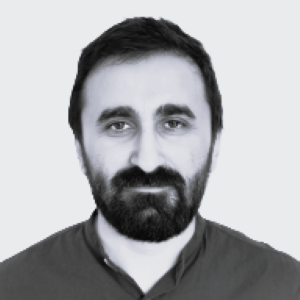
Sercan BEYTUR
PHYLOGENE / Computational Biologist
France
Quantitative shotgun proteomics, an efficient tool to explore physiological benefits of hair care products
Proteomics analysis was used to assess the biological effects on hair follicles of a topical anti-hair loss treatment used by human volunteers. 4,008 human proteins were identified, and proteomics profiles of samples from start and end of the trial were shown to be different.
Furthermore, Phylogene conducted an enrichment analysis, revealing multiple biological functions and pathways modulated by the application of this product, opening the way for supporting the product claim.
BIOPIC
Sercan Beytur joined Phylogene in May 2022 where he is in charge of bioinformatics analyses and the understanding of biological meanings thereof. After the obtention of a PhD in Bioinformatics and Genetics from Kadir Has University, he is now working closely on omics data – as proteomics analyses and microbiome studies. For the dermo-cosmetic industry, his work aims to highlight the effects of bioactive ingredients on skin physiology in deciphering key molecular mechanisms in action.
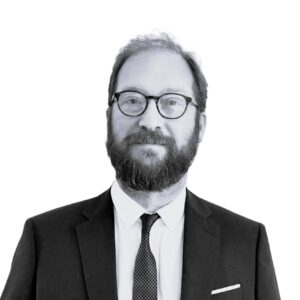
Jérôme MUNIGLIA
University of Lorraine / Lecturer-researcher
France
Upcycling of Natural Byproducts to Produce Original Enzymes through Fungal Cultivation for Natural Colorants Production for Cosmetics
The research presented develops an integrated approach to upcycling plant byproducts to cultivate a fungus producing original oxidoreductases, mainly laccases, for natural cosmetic colorants production.
Thanks to an upcycled, fully plant-based medium, we significantly enhance fungal growth and trigger an increase in laccase production compared with standard media. This secretome enables the enzymatic extraction of pigments from a naturally chromophore-rich wood, producing brown to purple extracts well-suited for hair-coloring applications.
BIOPIC
Dr. Lionel Muniglia is a biocatalysis expert and founder of “BIOLIE by Sensient,” created following his patented aqueous-enzymatic process for extracting plant oils and proteins. After 13 years of development, BIOLIE has joined the global Sensient group. His work builds on academic research at the University of Lorraine and the Laboratory of Biomolecular Engineering. Today, he advances enzyme-based biorefineries for clean extraction of plant biomass and the sustainable synthesis of biomolecules.

